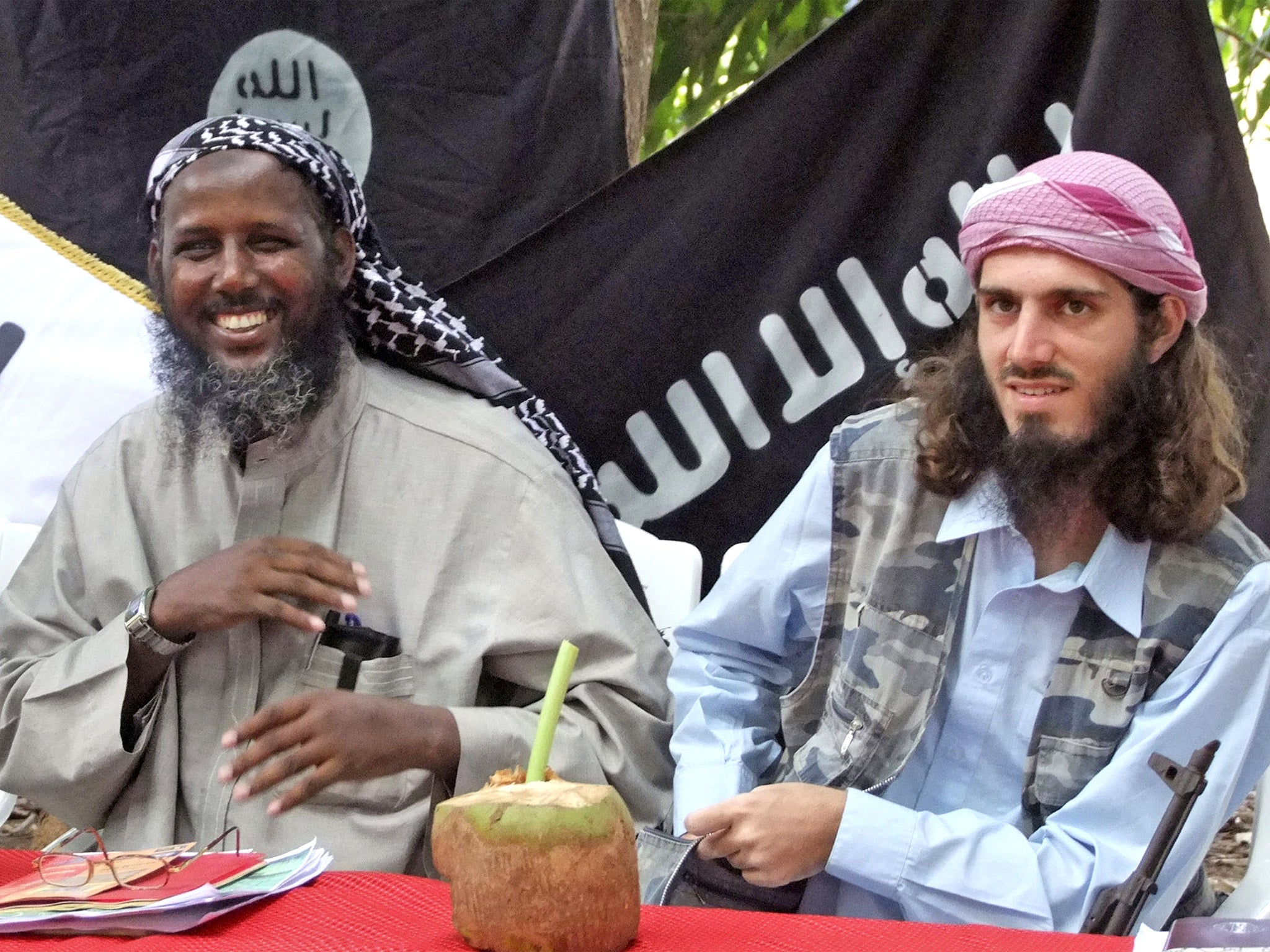Alabaman jihadist wanted by US – and Islamic militants al-Shabaab
Omar Hammami shot in neck after falling out with al-Qa’ida-affiliated group in Somalia

Your support helps us to tell the story
From reproductive rights to climate change to Big Tech, The Independent is on the ground when the story is developing. Whether it's investigating the financials of Elon Musk's pro-Trump PAC or producing our latest documentary, 'The A Word', which shines a light on the American women fighting for reproductive rights, we know how important it is to parse out the facts from the messaging.
At such a critical moment in US history, we need reporters on the ground. Your donation allows us to keep sending journalists to speak to both sides of the story.
The Independent is trusted by Americans across the entire political spectrum. And unlike many other quality news outlets, we choose not to lock Americans out of our reporting and analysis with paywalls. We believe quality journalism should be available to everyone, paid for by those who can afford it.
Your support makes all the difference.Omar Hammami, an American-born jihadist who lives in Somalia, has live-tweeted what may have been his final, fatal encounter with his former associates in al-Shabaab, the militant Islamic group based in the conflict-ravaged East African nation.
The 28-year-old Mr Hammami, originally from Alabama, is wanted as a terrorist by the US government, but has also become embroiled in a violent factional dispute with members of the al-Qa’ida-affiliated organisation he joined in 2006.
Last Thursday, via his Twitter account, @abuamerican, Mr Hammami described an attempt on his life by a man who, he believed, was sent by al-Shabaab leaders and shot him in the neck as he sipped tea at a shop somewhere in Somalia. Taking part in a rare interview with Wired.com, also via Twitter, he revealed he was in great pain, but that the bullet had failed to hit his windpipe or any major arteries. He had treated himself with rudimentary first-aid supplies and even tweeted several graphic photographs of the bloody wound.
But Mr Hammami’s luck appeared to be running out, and on Monday he gave a running account of having been surrounded by al-Shabaab gunmen at his hideout and frogmarched to a hastily convened “court”. A fatwa was issued for his protection by some al-Shabaab leaders, but after his release, others pursued him towards his home village. “May not find another chance to tweet but just remember what we said and what we stood for,” he wrote. “God kept me alive to deliver the mssg 2 the umah.”
Mr Hammami was born to a Syrian Muslim father and a Protestant American mother in Daphne, Alabama, and raised as a Christian before turning to Islam in his teens. In 2006, with no military training, he travelled to Somalia to join al-Shabaab, a ruthless jihadist group known for beheading its enemies and stoning women accused of adultery. By 2010, when he was the subject of a lengthy New York Times Magazine profile, he had risen to become a key figure in the group, appearing in recruitment videos sound-tracked by his own English-language jihadist rap songs, such as “Send me a Cruise Missile”. He was nicknamed Abu Mansoor al-Amriki, or “The American”.
But the following year he split with al-Shabaab, accusing its leaders of corruption and using Twitter to attack them and the US. This week’s attempts on his life, he told his 2,700 followers, was the “culmination” of “warfare against those who speak truth”.
In the stand-off on Monday, Mr Hammami reported that he and his colleagues had fought back in self-defence, killing three of their pursuers and suffering no losses themselves. “The main amir who wanted [to] fight us was from the killed,” he claimed.
Mr Hammami has not tweeted since 2pm on Tuesday, when he said al-Shabaab aggressors had begun to harass his allies’ wives. He said the men had targeted him against the express wishes of several al-Shabaab leaders.
Join our commenting forum
Join thought-provoking conversations, follow other Independent readers and see their replies
Comments